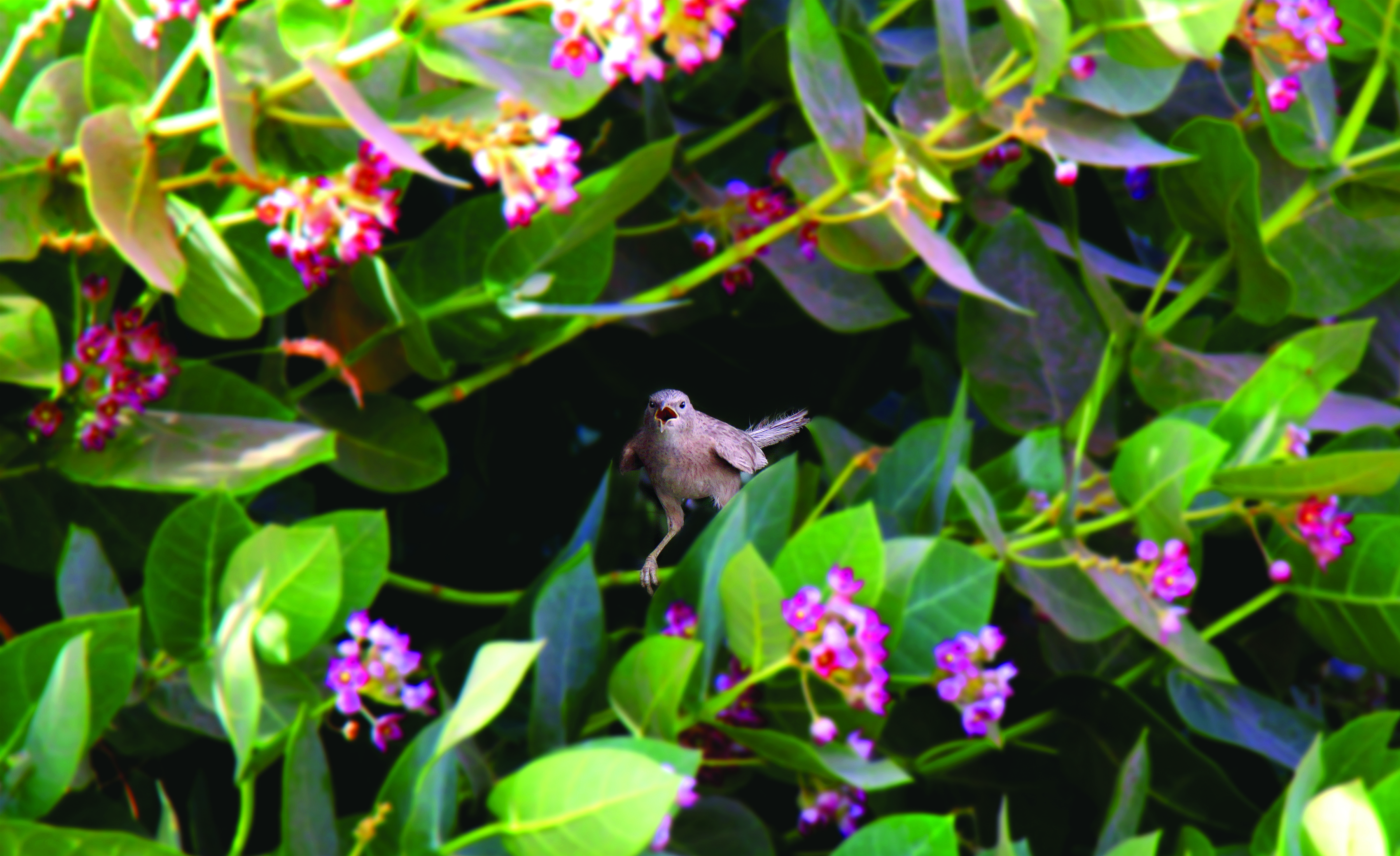

Text and Photos by Dr SS Suresh
Birds, over time, have evolved and developed their very own system so that they can survive in the wild.
My deep passion for birds recently allowed me to regal at the beauty and grace of Arabian babblers or scientifically known as Turdoides Squamiceps.
Arabian babblers (Turdoides Squamiceps) are unique social passerine thrush-size songbirds that are fairly common in the Sultanate of Oman, found in arid areas of Middle Eastern countries and certain parts of the Indian subcontinent.

These birds prefer to settle along dry river beds with few trees and bushes. These babblers have a fairly long curved bill, a long tail with plumage of grey-brown above and paler below. There are dark streaks on the back with a whitish throat. They are often seen as noisy social groups hopping on the ground with the tailed cocked up. They are often seen taking sand bath, offering gifts to each other, preening themselves and entering into conflict for the privilege of helping the dominant couple.
They are co-operative breeders that live in groups and known to defend their territories around the year. Each group has a size of around 10 individuals, with a reproductive pair and other non-breeding members who may or may not be direct offspring or close relatives. The non-reproductive birds are helpers, similar to the helpers in honeycombs and they participate in rearing the offspring, providing food as well as in other parenting behaviour like incubation, territory defence against predators. This act of conferring benefit on someone at a cost to the other is called altruism.
One individual, most often, the dominant alpha male, is usually seen perched on the highest branch of the tree inspecting the neighbourhood as a sentinel. This allows the rest of the group to forage in comfort. When threatened by a predator the whole group might perch on the top of the tree. A beta male often perches on the lower branch and climbs to the final guarding position at a higher level after the alpha male leaves the perch.
Very often the alpha and beta males compete to guard. Although this altruistic act reduces their reproductive success, the non-dominant birds, by competing for guarding, signals their quality and fitness over fellow birds. This might increase their social standing and gain them reproductive status. This type of facultative altruism is also documented in other birds like Florida scrub jay.
Oman Observer is now on the WhatsApp channel. Click here



